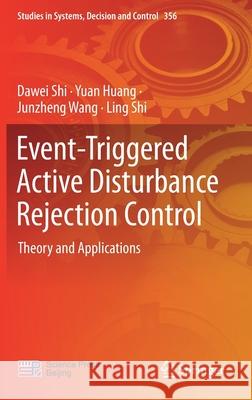Event-Triggered Active Disturbance Rejection Control: Theory and Applications » książka
topmenu
Event-Triggered Active Disturbance Rejection Control: Theory and Applications
ISBN-13: 9789811602924 / Angielski / Twarda / 2021 / 228 str.
Event-Triggered Active Disturbance Rejection Control: Theory and Applications
ISBN-13: 9789811602924 / Angielski / Twarda / 2021 / 228 str.
cena 563,56
(netto: 536,72 VAT: 5%)
Najniższa cena z 30 dni: 539,74
(netto: 536,72 VAT: 5%)
Najniższa cena z 30 dni: 539,74
Termin realizacji zamówienia:
ok. 16-18 dni roboczych.
ok. 16-18 dni roboczych.
Darmowa dostawa!
Kategorie:
Kategorie BISAC:
Wydawca:
Springer
Seria wydawnicza:
Język:
Angielski
ISBN-13:
9789811602924
Rok wydania:
2021
Wydanie:
2021
Numer serii:
000477984
Ilość stron:
228
Waga:
0.52 kg
Wymiary:
23.39 x 15.6 x 1.6
Oprawa:
Twarda
Wolumenów:
01
Dodatkowe informacje:
Wydanie ilustrowane











